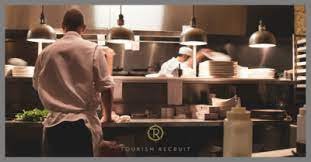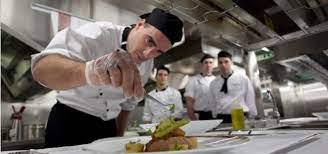
Introduction: In the bustling world of professional kitchens, the role of a Chef de Partie stands as a cornerstone. This position is often considered the backbone of a kitchen brigade, responsible for overseeing specific sections and ensuring the smooth execution of culinary masterpieces. In this article, we delve into the intricacies of the Chef de Partie role, exploring its responsibilities, skills required, and the path to success in this dynamic culinary profession.
Understanding the Role: The term “Chef de Partie” originates from French cuisine and translates to “head of the section.” In a traditional kitchen hierarchy, it sits just below the Sous Chef and above the Commis Chef. The Chef de Partie is typically in charge of a particular station or section within the kitchen, such as sauces, fish, meat, pastry, or vegetables.
Responsibilities: The responsibilities of a Chef de Partie are multifaceted and demand a combination of culinary expertise, leadership skills, and meticulous attention to detail. Some key responsibilities include:
- Preparation: Ensuring that all ingredients are prepared and organized for service according to the menu specifications.
- Cooking: Overseeing the cooking process to maintain consistency, quality, and adherence to culinary standards.
- Station Management: Managing the assigned section efficiently, including equipment maintenance, cleanliness, and organization.
- Training and Supervision: Mentoring and supervising junior kitchen staff, such as Commis Chefs and kitchen apprentices.
- Quality Control: Upholding the highest standards of food quality, presentation, and taste.
- Collaboration: Working closely with other members of the kitchen brigade to ensure smooth workflow and timely service.
- Menu Development: Collaborating with the Head Chef and Sous Chef in creating new dishes and refining existing ones.
Skills Required: To excel as a Chef de Partie, individuals must possess a diverse skill set honed through experience and formal culinary education. Some essential skills include:
- Culinary Proficiency: A deep understanding of cooking techniques, flavor profiles, and culinary principles is essential.
- Time Management: The ability to work efficiently under pressure and manage multiple tasks simultaneously.
- Leadership: Effective communication, delegation, and teamwork skills are crucial for leading a section and mentoring junior staff.
- Attention to Detail: Precision in measurement, plating, and presentation is paramount in maintaining quality standards.
- Creativity: The capacity to innovate and adapt recipes while adhering to the restaurant’s culinary concept.
- Adaptability: Flexibility to work in a fast-paced environment and adjust to changing priorities and demands.
- Problem-Solving: The capability to troubleshoot issues that arise during service and implement effective solutions.
Career Path: The journey to becoming a successful Chef de Partie often begins with formal culinary training from reputable culinary schools or apprenticeships under experienced chefs. Entry-level positions as Commis Chefs provide valuable hands-on experience and opportunities for skill development. Aspiring chefs may then progress through the ranks, gaining expertise in various kitchen stations before assuming the role of Chef de Partie.
Continuous learning and professional development are vital for advancement in the culinary industry. Chefs can broaden their skill set and knowledge through workshops, seminars, and specialized training programs. Additionally, seeking mentorship from seasoned chefs and gaining exposure to diverse cuisines can enhance one’s culinary repertoire and career prospects.

Challenges and Rewards: While the role of a Chef de Partie offers immense satisfaction and opportunities for growth, it also comes with its share of challenges. Long hours, demanding work environments, and intense pressure during service are common aspects of kitchen life. However, for those passionate about the culinary arts, the rewards outweigh the challenges.
The sense of pride in creating exquisite dishes, the camaraderie among kitchen colleagues, and the opportunity to continuously refine one’s skills make the journey as a Chef de Partie deeply fulfilling. Moreover, the culinary world offers endless opportunities for creativity, innovation, and career advancement for those dedicated to mastering their craft.
Conclusion: In the intricate tapestry of a professional kitchen, the role of a Chef de Partie stands as a vital thread, weaving together skill, passion, and dedication. With a blend of culinary expertise, leadership acumen, and a relentless pursuit of excellence, Chef de Parties play a pivotal role in elevating the dining experience for guests and shaping the culinary landscape. Aspiring chefs who embark on this journey find themselves on a path of continuous learning, growth, and fulfillment as they strive to master the art of gastronomy, one dish at a time.
